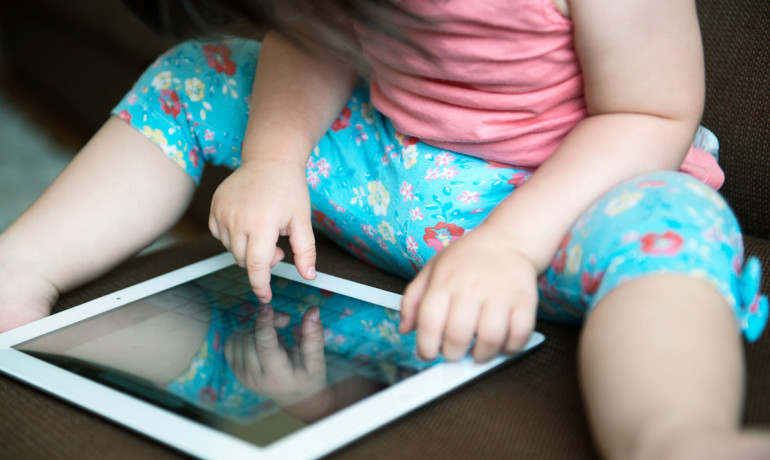By the age of two most toddlers are able to use a tablet with only a little help from an adult.
Other research has explored the prevalence of tablet use by young children, but the new study, in which researchers watched more than 200 YouTube videos, is the first to investigate how infants and toddlers actually use iPads and other electronic devices.
“By age two, 90 percent of the children in the videos had a moderate ability to use a tablet,” says Juan Pablo Hourcade, associate professor of computer science at the University of Iowa. “Just over 50 percent of 12-to-17-month-old children in the videos had a moderate ability.”
TODDLER APPS
The researchers defined “moderate ability” as needing help from an adult to access apps, but being able to use them while displaying some difficulty with basic interactions.
Hourcade says he was inspired to use YouTube videos by another researcher who analyzed online videos of computer use by people with motor impairments. Watching YouTube videos allowed his group to conduct the research without having to ask infants and toddlers to use tablets, something that some pediatricians discourage.
“On the other hand, we know that infants and toddlers are using iPads and other devices because we’ve seen the videos recorded by their parents, and surveys confirm it is happening. It’s happened really quickly—before we could get out and arrange for more conventional studies,” he says.
While there are drawbacks to using unsolicited YouTube videos, such as not knowing the exact ages of the children pictured and that the children pictured were selected by their caregivers and may not be representative of the larger society, the researchers were able to estimate the ages of the children (two-thirds of the videos included the age) and observe a clear progression of successful performance linked to age that is consistent with developmental milestones.
“One of the biggest differences we found is that when children turn one year old, they switch from using both hands and all their fingers to interact with the tablet to using an index finger—which is what adults do,” he says.
He says he hopes that the study will influence the development of apps that encourage interactive education for infants and toddlers. The apps he envisions might be similar to the social and interactive-like children’s programs currently found on public television.
“We may be able to use research on what makes certain children’s educational television programs beneficial as a starting point and go on from there,” he says.
Fuente: www.futurity.org
